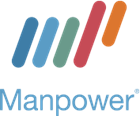In 1990, one in five young people in the U.S. were unemployed. Now, that number has climbed to one in three.
This alarming statistic is part of a worldwide phenomenon referred to as NEET (Not in Education, Employment or Training).
Where is Gen Z?
There is no one reason for the rise in NEET and unemployed youth, but there are several contributing factors.
- Mental health issues – Depression is growing among this age group. The share of young adults reporting depression climbed from approximately 4% in 2017 to 12.4% in 2022. In a joint Gallup/Walton Family Foundation report, just 15% of 18- to 26-year-olds rate their current mental health as excellent. In contrast, 52% of this age group rated their mental health as excellent in 2013. No wonder, then, that as the share of young people struggling with their mental health has risen over the last decade, so too has the number who are out of work due to ill health.
A three-year U.K. study found that those in their early twenties are more likely to be out of work due to ill health than those in their early forties. This finding marks a significant shift from the long-standing trend where older age groups were more prone to unemployment due to (physical or mental) health issues.
- Disillusionment with jobs – Half of Gen Z workers say their 9 to 5s have a negative impact on their mental health (49%) according to a new study of U.S. adults ages 18+. An even larger number (60%) describe traditional 9 to 5 jobs as “soul-sucking,” with 43% saying they have no desire to work a traditional 9 to 5 job at all. While some of this can be attributed to the “reality hit” that happens to every generation as they leave college, there is evidence that Gen Z means it. 7 out of 10 say that they prioritize family and relationships over career and 30% have quit a job because their employer has not taken action on an issue of importance to them.
- Changing marketplace – Those that are graduating college are having trouble finding jobs while, at the same time, there’s more demand for technical and blue-collar jobs. Graduates don’t realize that the market is changing, and their dream job might not be waiting for them when they get out.
According to a recent study, graduates with such majors as public safety and security, recreation and wellness studies, and general business fields like marketing are having the toughest time finding work. These graduates increasingly end up underemployed, meaning they take a role requiring less education and training. In fact, 45% of all recent college graduates remain underemployed a full decade after graduation.
There are also fewer entry-level jobs on the market. In a 2023 PwC survey, less than 61% of human resources leaders said that they are hiring for entry-level and less-specialized positions, down from 79% in 2022. And too frequently, jobs labeled as entry level specify that experience is preferred.
Getting them off the sidelines
Better work/life balance
The pandemic changed many of the rules around working. Gen Z has likely seen parents or older siblings work from home during Covid-19 and may have never worked in a physical office themselves. Research has shown that a flexible schedule is important to this age group, with one of many studies revealing that 71% of young job seekers are more likely to apply for jobs with a flexible schedule.
Interestingly, however, this same study found that only 14% of students and new grads wanted a job that was fully remote. They recognize the value, both personally and professionally, that comes with in-person work. In another study, 47% of Gen Z respondents say that working remotely has negatively impacted their mental health.
Alignment with company values
A study by Washington State University found that wanting to make a positive impact in the world was the number one goal of 18-24-year-olds, with 70% citing a desire to work for a company whose values align with their own.
According to research by Deloitte, roughly six in 10 Gen Zs and millennials believe that business has the opportunity to influence a range of societal challenges. Protecting the environment and ensuring the ethical use of technologies such as gen AI are at the top of that list.
This same study found that three-quarters of respondents say that an organization’s societal impact is an important factor when considering an employer, and two in 10 Gen Zs and millennials have already changed jobs or industries to align with their environmental values. They also actively research the environmental practices of companies they purchase from and are willing to pay more for sustainable products.
Nearly two-thirds of Gen Zs and millennials (63%) believe business has the ability to influence social equality. But in ManpowerGroup’s report, The New Human Age, 68% of Gen Z workers say that they’re not satisfied with their organization’s progress in creating a diverse and inclusive work environment. The focus on ESG is only natural for a generation where 48% identify as racially or ethnically diverse.
A path for advancement
Gen Zers are highly focused on bettering themselves. According to LinkedIn Learning, this generation outpaces all other age groups when it comes to a passion for career-focused learning.
One report found that 80% of Gen Z workers would prefer a job that allows them to explore many new skills over one that requires them to focus on a single task.
Keeping them in the game
Focus on well-being and ESG
- Mental and physical well-being go hand-in-hand, but mental health is frequently glossed over. For example, 26% of Gen Zs say their senior leaders do not speak about prioritizing mental health in their organizations, leading them to feel that these topics are not appropriate for discussion in a professional context. Opening up about mental health and well-being is the first step toward acknowledging the need and initiating solutions. Another big-picture approach is to institute some basic, organization-wide prevention strategies, such as ensuring workload and working conditions are in line.
- Form employee resource groups or business resource groups to foster a sense of community among employees with common identities or interests. These groups often further diversity, equity and inclusion goals as well.
- Make mental health resources available and part of your employee benefit package. Allow employees to take mental health days just as they take sick days. Mental health days are a great way to unplug and lower stress levels. And it’s well known that work-related stress impacts job performance, productivity, work engagement and communication.
- Pair younger employees with older workers as mentors for inter-generational knowledge transfer. This will help fuel Gen Zers’ desire to advance as well as their desire to contribute to the company’s bottom line. Bonus: older workers enjoy sharing their knowledge as well.
- Start with a company-wide well-being survey to get an initial idea of how people are feeling and what they want from workplace well-being. Then, keep track of how things are changing and how any well-being initiatives are performing.
- Improving your ESG goals will help attract Gen Z candidates as well as investors and customers. There are endless ways to improve your ESG score, from cutting back on consumption of goods and utilities to increasing employee perks to improving your company’s self-accountability on these initiatives.
Don’t over-rely on college as a difference-maker
- Consider joining the growing number of employers who are dropping this requirement. Google, Delta Air Lines and IBM are just a few of the companies shifting to data and insights—not just academic performance—to better gauge a candidate’s employment potential.
- Offer more employment programs and educational options for young people who elect not to attend a four-year university, or who decide to make a career change. These programs align with Gen Z’s desire for advancement.
- Apprenticeships are also growing in popularity. These are a win-win for companies and apprentices, because the company gets a well-trained, engaged employee and the worker gets a job in an in-demand field (93% retain employment after the internship ends).
To sum up
Cultural changes, societal pressures and shifting workforce needs have caused some young workers to sit on the sidelines or rethink their futures. Some are finding it nearly impossible to find the job of their undergraduate dreams, while others are skipping college altogether because they don’t want to be crippled by crushing debt.
As discussed above, there are a wide variety of measures you can take to provide mental and emotional support for young employees. The other key to the Gen Z puzzle lies in professional development. When your workforce is in the right frame of mind, learning and development can become a priority. This is critical, given the ever-growing skills gaps across many industries.
Providing support to the whole person will be a game-changing strategy for forward-thinking organizations. Once an employee is ready, providing the right development resources will aid in building trust and loyalty.
Manpower’s MyPath program is a comprehensive combination of these options, available to all of our associates. If contingent staffing is an option for you, consider the benefits of this ready-made professional development program. Another option—Manpower is a national apprenticeship program sponsor, meaning that we can help you set up your own apprenticeship program.
For more help with securing or managing your workforce, contact Manpower.




